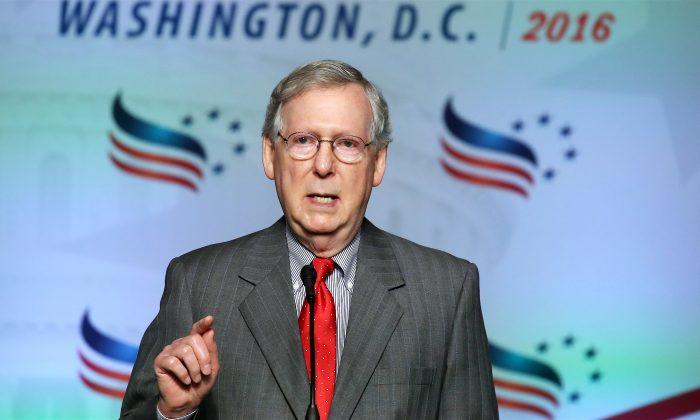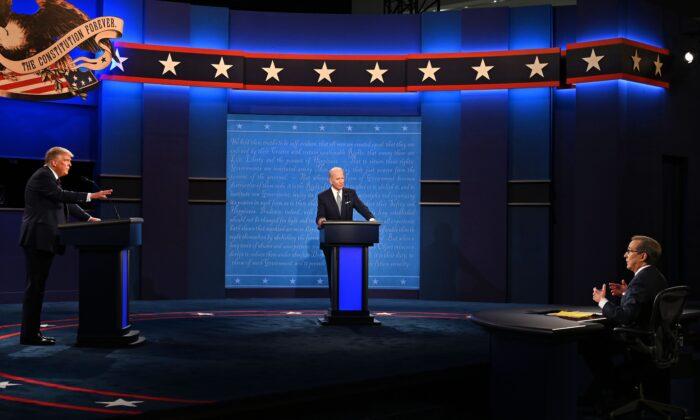The rift between the GOP leadership and Donald Trump has widened in the aftermath of the terror attack in Orlando.
Top Republicans have reacted critically to Trump’s renewed calls to temporarily ban Muslims from entering the United States following the attack on a nightclub in Orlando, Florida, in which 49 people were killed. The attack was carried out by Omar Mateen, who was born in the United States, but whose parents are from Afghanistan.
“I do not think a Muslim ban is in our country’s interest. I do not think it is reflective of our principles not just as a party, but as a country. And I think the smarter way to go in all respects is to have a security test and not a religious test,” said Speaker of the House Paul Ryan on June 15 in response to Trump’s comments.
Despite disagreements over the proposed Muslim ban and comments about a federal judge who is overseeing two class-action lawsuits against Trump University—which Ryan described as “the textbook definition of a racist comment”—Ryan has stood by his endorsement of Trump as the presumptive Republican nominee.
After the controversy surrounding Trump’s comments about Judge Gonzalo Curiel, an American born judge who Trump referred to as Mexican, many Republicans were hoping to avoid similar controversies.
Instead, many Republicans found themselves in a similar position this week when asked to defend Trump’s response to the Orlando shooting, and they have refrained from comment.
Senate Majority Leader Mitch McConnell told reporters at a press conference on Tuesday that he would not be commenting on the presumptive Republican nominee.
It was Trump’s comments during a June 13 interview on Fox and Friends that drew most ire among the Republican leadership. He seemed to imply that President Barack Obama somehow has ulterior motives when it comes to the fight against terrorism.
Trump said on the talk show that “We’re led by a man that either is not tough, not smart, or he’s got something else in mind. And the something else in mind. You know, people can’t believe it. People cannot, they cannot believe that President Obama is acting the way he acts and can’t even mention the words ‘radical Islamic terrorism.’ There’s something going on. It’s inconceivable.”
He also told the Associated Press on June 14 that President Obama “claims to know our enemy, and yet he continues to prioritize our enemy over our allies, and for that matter, the American people.”
“Mr. Trump seems to be suggesting that the president is one of them. I find that highly offensive, I find that whole line of reasoning way off-base,” said Sen. Lindsey Graham of South Carolina on June 15.
“Mr. Trump’s reaction to declare war on the faith is the worst possible solution,” he said.
Some within the Republican party have openly spoken about the possibility of Trump not becoming their nominee, despite having won the number of delegates required to win the nomination.
“We do not have a nominee until after the convention,” said senior Senate Republican Lamar Alexander of Tennessee in response to a reporter’s question.
Reminded that Trump is the presumptive nominee, Alexander retorted, “That’s what you say.”
Last week, former Republican presidential nominee Mitt Romney, who has been one one of the most vocal of the party leadership against Trump, hosted hundreds of Republican leaders at the 2016 Experts and Enthusiasts summit held at a mountain resort in Park City, Utah, where the future of the Republican party was discussed on the sidelines. Trump was notably absent at the meeting.
A CBS News poll released Wednesday that only 25 percent of Americans approved of Donald Trump’s response to the Orlando terror attacks.
Trump responded to the criticism from within his party Wednesday, telling a crowd in Atlanta, Georgia, that Republicans can “either stick together or let me just do it by myself.”




